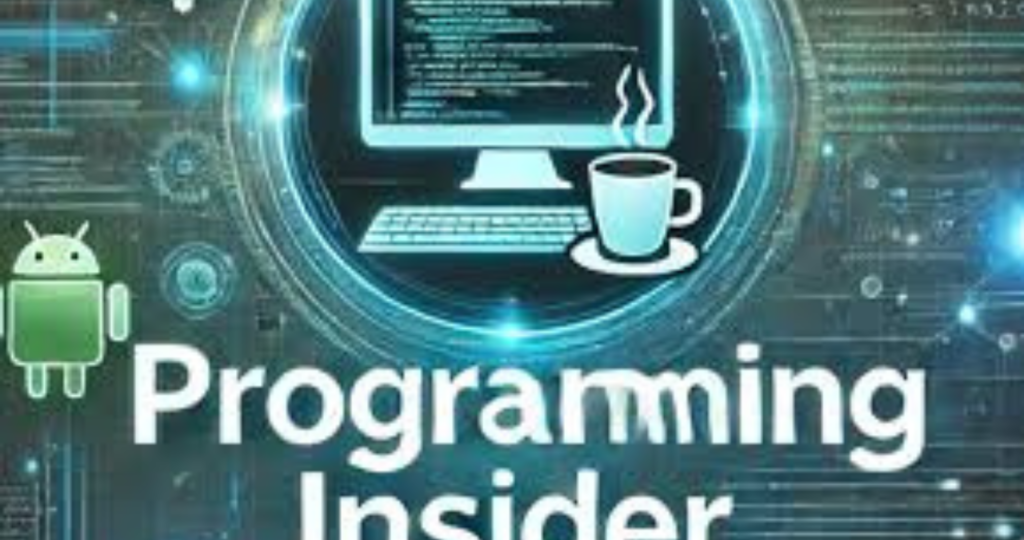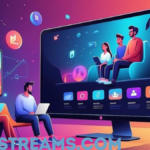Introduction
In the dynamic realm of technology, programming stands as the backbone of countless innovations and applications. The role of a programming insider is crucial, often involving deep dives into complex coding environments and keeping pace with rapid technological advancements. This article seeks to unveil the layers of programming from an insider’s perspective, shedding light on the historical evolution, essential tools, best practices, and the significant impact of programming across various industries. By exploring these facets, we aim to equip both budding and seasoned programmers with the knowledge and trends that shape today’s tech landscape, emphasizing the importance of continuous learning and adaptation in this ever-evolving field.
The Evolution of Programming: A Historical Overview
Programming has journeyed through a remarkable evolution, beginning with the rudimentary binary codes of the early computing era to the sophisticated, high-level languages that now drive modern software development. Initially, programming was about direct communication with hardware using cumbersome machine languages. As technology advanced, so did the languages, with the introduction of assembly languages that provided a slight abstraction from the binary codes of machines. This evolution marked the first significant leap towards making programming more accessible and less error-prone.
The 1960s and 1970s saw the advent of structured programming with languages like C, which introduced control structures that facilitated programs that were both easier to write and understand. The subsequent rise of object-oriented programming (OOP) transformed the landscape further, with languages such as C++ and Java emphasizing objects rather than actions. OOP allowed developers to create modular, reusable code, significantly impacting software development practices. Today, we stand on the brink of a new era marked by languages and frameworks designed to integrate with artificial intelligence, cloud computing, and quantum computing, promising to redefine the boundaries of what programming can achieve.
Essential Tools and Technologies for Modern Programmers
Modern programming is not just about understanding languages but also about mastering the tools and technologies that make development faster, more efficient, and less prone to error. Integrated Development Environments (IDEs) like Visual Studio, IntelliJ IDEA, and Eclipse offer powerful editing tools, debuggers, and compilers in a single interface, streamlining the coding process significantly. Similarly, version control systems such as Git help manage changes to source code, facilitating better collaboration and tracking alterations across the project’s lifecycle.
Beyond IDEs and version control, programmers rely heavily on libraries and frameworks to avoid ‘reinventing the wheel.’ Frameworks like Angular for web development and TensorFlow for machine learning provide structured ways to build and deploy applications efficiently. Debugging tools also play a critical role, helping programmers identify and rectify errors in their code. Tools like Debugger in Visual Studio and PyCharm’s debugger for Python are indispensable in a developer’s toolkit, ensuring that applications run smoothly and are free from critical bugs.
Best Practices in Programming
Writing clean, maintainable code is a hallmark of a skilled programmer. It involves adhering to coding standards, properly documenting code, and organizing it in a way that makes sense to others and future selves. Code reviews are another essential practice, where peers scrutinize each other’s code for potential errors and improvements, fostering a collaborative environment and enhancing code quality. Pair programming, where two programmers work together at one workstation, further exemplifies this collaborative spirit, merging two perspectives into the coding process to reduce mistakes and improve code quality.
Testing is another critical practice, with various types of tests like unit testing, integration testing, and system testing designed to ensure that code not only works initially but continues to function after updates and modifications. Security practices are equally vital, as programmers must constantly be vigilant against vulnerabilities that could be exploited by malicious entities. Techniques such as input validation, encryption, and secure software design are essential defenses in protecting sensitive data and maintaining user trust.
Conclusion
Programming is a field of constant learning and adaptation. From its historical roots to the latest developments in AI and machine learning, programming continues to be at the heart of technological innovation. For programmers, staying updated with the latest tools, practices, and industry developments is not just beneficial—it’s essential. Engaging with the programming community, participating in forums, attending workshops, and continuously exploring new technologies are crucial for anyone looking to thrive in this field. As we continue to decode the intricacies of programming, remember that each line of code is a step towards mastering this dynamic discipline.
FAQs
What is the best programming language for beginners?
- Python is often recommended for beginners due to its readability and the wide range of applications, from web development to machine learning.
How much can a beginner programmer expect to earn?
- Salaries vary widely depending on location, industry, and the specific programming skills in demand. However, entry-level programmers can expect to start at a competitive salary due to the high demand for tech skills.
What are the biggest challenges faced by programmers today?
- Keeping up with rapidly changing technologies, managing complex software projects, and ensuring security against cyber threats are significant challenges in the field.
How do programming trends affect other tech careers?
- Programming trends often set the pace for broader technological advancements, affecting careers in data science, artificial intelligence, cybersecurity, and more, as these disciplines rely heavily on software development skills.
You May Also Read:https://buzzinfodaily.com/experts-aigilbertwired/


